
-
 M23 militia says to pull out of key DR Congo city at US's request
M23 militia says to pull out of key DR Congo city at US's request
-
Thousands of glaciers to melt each year by mid-century: study

-
 China to impose anti-dumping duties on EU pork for five years
China to impose anti-dumping duties on EU pork for five years
-
Nepal starts tiger census to track recovery

-
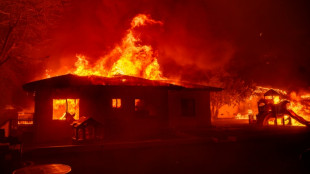 Economic losses from natural disasters down by a third in 2025: Swiss Re
Economic losses from natural disasters down by a third in 2025: Swiss Re
-
Indonesians reeling from flood devastation plea for global help

-
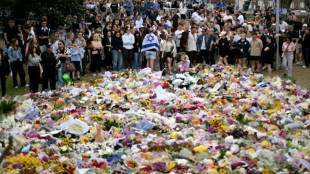 Timeline: How the Bondi Beach mass shooting unfolded
Timeline: How the Bondi Beach mass shooting unfolded
-
On the campaign trail in a tug-of-war Myanmar town

-
 Bondi Beach suspect visited Philippines on Indian passport
Bondi Beach suspect visited Philippines on Indian passport
-
Kenyan girls still afflicted by genital mutilation years after ban
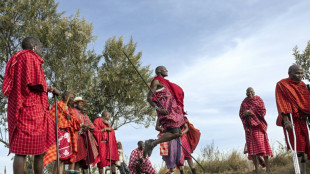
-
 Djokovic to warm up for Australian Open in Adelaide
Djokovic to warm up for Australian Open in Adelaide
-
Man bailed for fire protest on track at Hong Kong's richest horse race

-
 Men's ATP tennis to apply extreme heat rule from 2026
Men's ATP tennis to apply extreme heat rule from 2026
-
10-year-old girl, Holocaust survivors among Bondi Beach dead
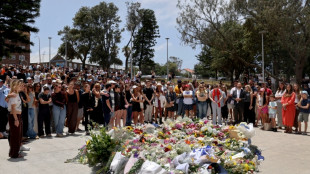
-
 Steelers edge towards NFL playoffs as Dolphins eliminated
Steelers edge towards NFL playoffs as Dolphins eliminated
-
Australian PM says 'Islamic State ideology' drove Bondi Beach gunmen

-
 Canada plow-maker can't clear path through Trump tariffs
Canada plow-maker can't clear path through Trump tariffs
-
Bank of Japan expected to hike rates to 30-year high

-
 Cunningham leads Pistons past Celtics
Cunningham leads Pistons past Celtics
-
Stokes tells England to 'show a bit of dog' in must-win Adelaide Test
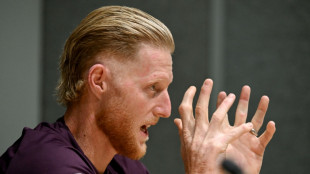
-
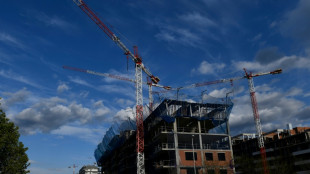 EU to unveil plan to tackle housing crisis
EU to unveil plan to tackle housing crisis
-
EU set to scrap 2035 combustion-engine ban in car industry boost
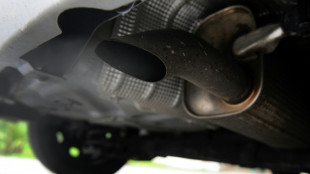
-
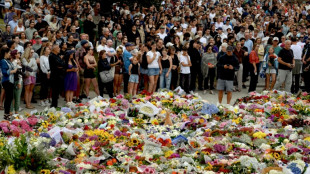 Australian PM visits Bondi Beach hero in hospital
Australian PM visits Bondi Beach hero in hospital
-
'Easiest scam in the world': Musicians sound alarm over AI impersonators

-
 'Waiting to die': the dirty business of recycling in Vietnam
'Waiting to die': the dirty business of recycling in Vietnam
-
Asian markets retreat ahead of US jobs as tech worries weigh
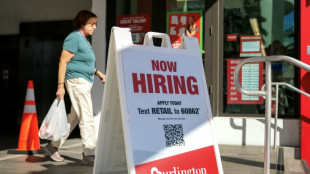
-
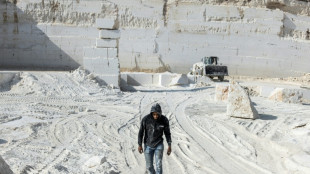 Famed Jerusalem stone still sells despite West Bank economic woes
Famed Jerusalem stone still sells despite West Bank economic woes
-
Trump sues BBC for $10 billion over documentary speech edit
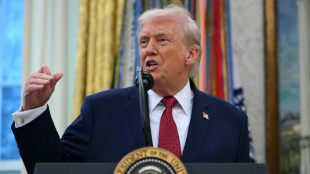
-
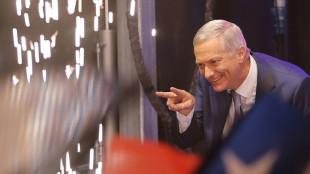 Chile follows Latin American neighbors in lurching right
Chile follows Latin American neighbors in lurching right
-
Will OpenAI be the next tech giant or next Netscape?

-
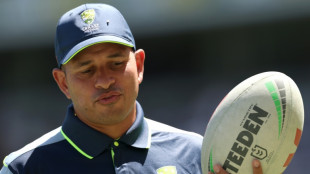 Khawaja left out as Australia's Cummins, Lyon back for 3rd Ashes Test
Khawaja left out as Australia's Cummins, Lyon back for 3rd Ashes Test
-
Australia PM says 'Islamic State ideology' drove Bondi Beach shooters

-
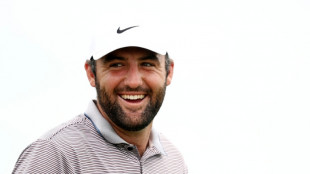 Scheffler wins fourth straight PGA Tour Player of the Year
Scheffler wins fourth straight PGA Tour Player of the Year
-
New APAC Partnership with Matter Brings Market Logic Software's Always-On Insights Solutions to Local Brand and Experience Leaders

-
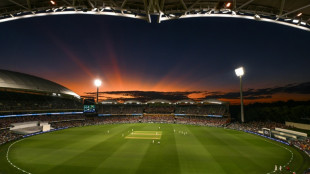 Security beefed up for Ashes Test after Bondi shooting
Security beefed up for Ashes Test after Bondi shooting
-
Wembanyama blocking Knicks path in NBA Cup final

-
 Amorim seeks clinical Man Utd after 'crazy' Bournemouth clash
Amorim seeks clinical Man Utd after 'crazy' Bournemouth clash
-
Man Utd blow lead three times in 4-4 Bournemouth thriller

-
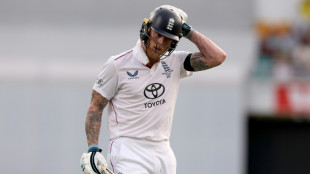 Stokes calls on England to 'show a bit of dog' in must-win Adelaide Test
Stokes calls on England to 'show a bit of dog' in must-win Adelaide Test
-
Trump 'considering' push to reclassify marijuana as less dangerous

-
 Chiefs coach Reid backing Mahomes recovery after knee injury
Chiefs coach Reid backing Mahomes recovery after knee injury
-
Trump says Ukraine deal close, Europe proposes peace force
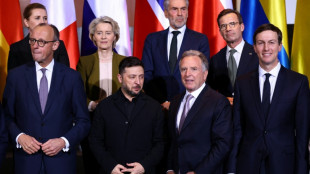
-
 French minister urges angry farmers to trust cow culls, vaccines
French minister urges angry farmers to trust cow culls, vaccines
-
Angelina Jolie reveals mastectomy scars in Time France magazine
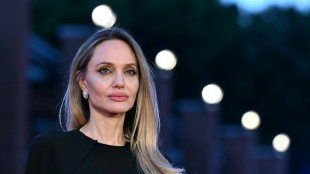
-
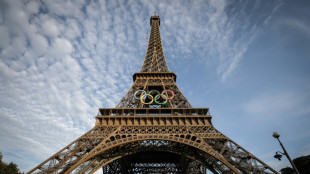 Paris Olympics, Paralympics 'net cost' drops to 2.8bn euros: think tank
Paris Olympics, Paralympics 'net cost' drops to 2.8bn euros: think tank
-
Chile president-elect dials down right-wing rhetoric, vows unity
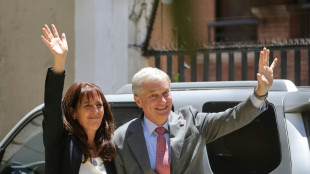
-
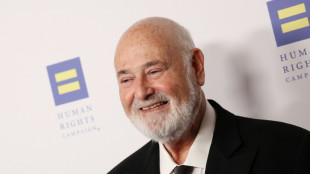 Five Rob Reiner films that rocked, romanced and riveted
Five Rob Reiner films that rocked, romanced and riveted
-
Rob Reiner: Hollywood giant and political activist
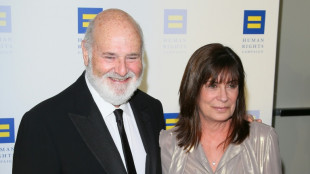
-
 Observers say Honduran election fair, but urge faster count
Observers say Honduran election fair, but urge faster count
-
Europe proposes Ukraine peace force as Zelensky hails 'real progress' with US


New controversies arise over French language in Canada
Do French-speakers face discrimination in Canada, despite its status as an official language along with English?
A string of recent leadership appointments and statements has revived the controversy over the French language's place in Canada, prompting a response from Prime Minister Justin Trudeau.
The latest blow: There are no longer any directors on the corporate board of Montreal-based CN, Canada's largest railway company, who speak French.
The question of whether Canadian corporate leaders should be bilingual received a lot of attention last fall, after the president of Air Canada, Michael Rousseau, said he did not have the time to learn French. He had to publicly apologize for those remarks a few days later.
Under Canadian law, state-owned businesses, such as CN and Air Canada, as well as airports and federal ministries, are required to provide services in both French and English to clients.
Prime Minister Justin Trudeau said this week that he was frustrated by the situation with CN.
"French-speaking Canadians across the country should see themselves reflected in our major national institutions," said the bilingual prime minister, who also asked the responsible government ministers to ensure CN works quickly to rectify the situation.
The recent controversies are a reminder of the French language's precarious position in a North American ocean of English-speakers, as well as previous battles to protect its status as an official language, which has been included in the Canadian constitution since 1982.
But according to some French language proponents in Canada, where the total population of 37 million contains 8 million francophones, the government has failed to meet expectations.
- Less than 20% of Canadians are bilingual -
"There is clearly a hypocrisy on the part of Trudeau," said Stephane Beaulac, a law professor and codirector of the University of Montreal's National Observatory on Linguistic Rights.
He pointed out that while the prime minister is bothered by the CN saga, he chose last year to appoint a non-French speaker as Canada's governor general, who serves as Queen Elizabeth II's official representative in the country.
Mary Simon, originally from the Nunavik area in northern Quebec, is the first Indigenous Canadian to become governor general, but only speaks English and the Inuit language of Inuktitut.
This week, Canada's Commissioner of Official Languages also rebuked the prime minister's office for not having all video streams on their official Facebook page subtitled or dubbed in French.
According to recent opinion polls, more than 90 percent of Canadians strongly support bilingualism, which they consider to be a part of Canadian culture, but less than 20 percent are fluent in both languages.
"Everyone must be able to be served in their preferred language since few Canadians are truly bilingual," says Stephanie Chouinard, a political science professor at the Royal Military College of Canada.
But, she adds, Canadians "have been waiting for the modernization of the Official Languages Act since 2019."
Beaulac, the law professor, notes that "for a long time, to defend French meant you were flagged as pro-separatist."
"Things have changed today, so people are more daring to challenge the domination of English."
Referring to the recent CN appointments, linguistic law professor Frederic Berard explains that "people are angry, shocked, and this anger is justified."
"However, today this kind of situation is relatively rare," especially in Quebec, adds Berard, who chaired Canada's national consultations on the reform of official languages.
But the situation is much more complex for Francophones who do not live in Quebec, he adds, even if there have been advances in recent years.
L.Henrique--PC
